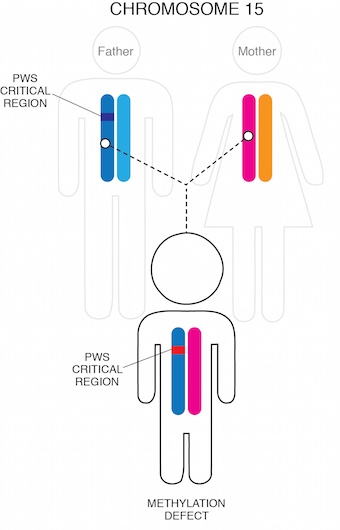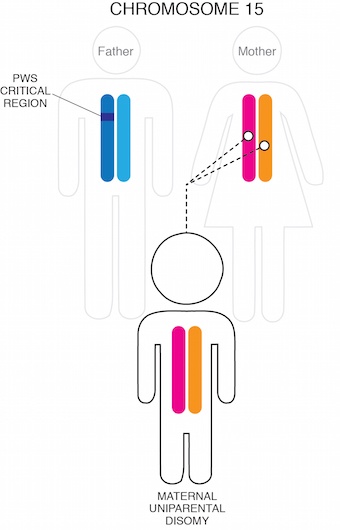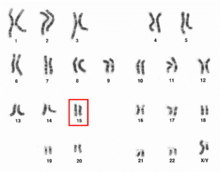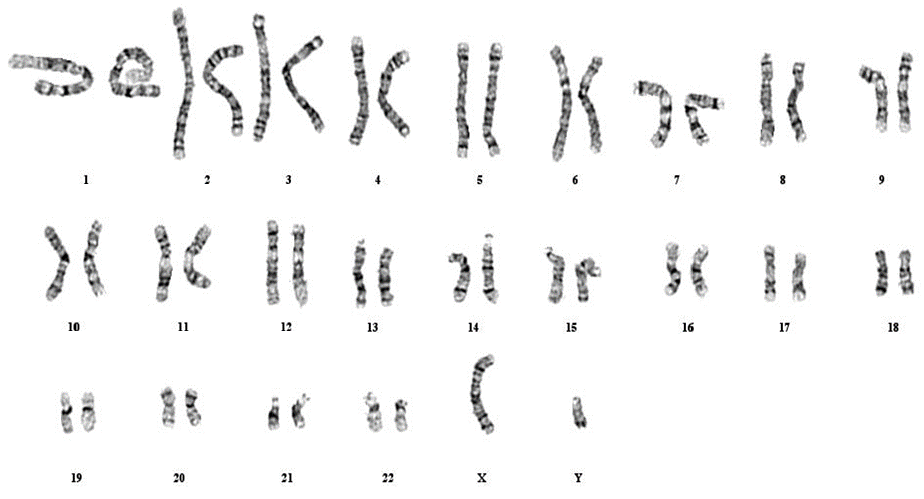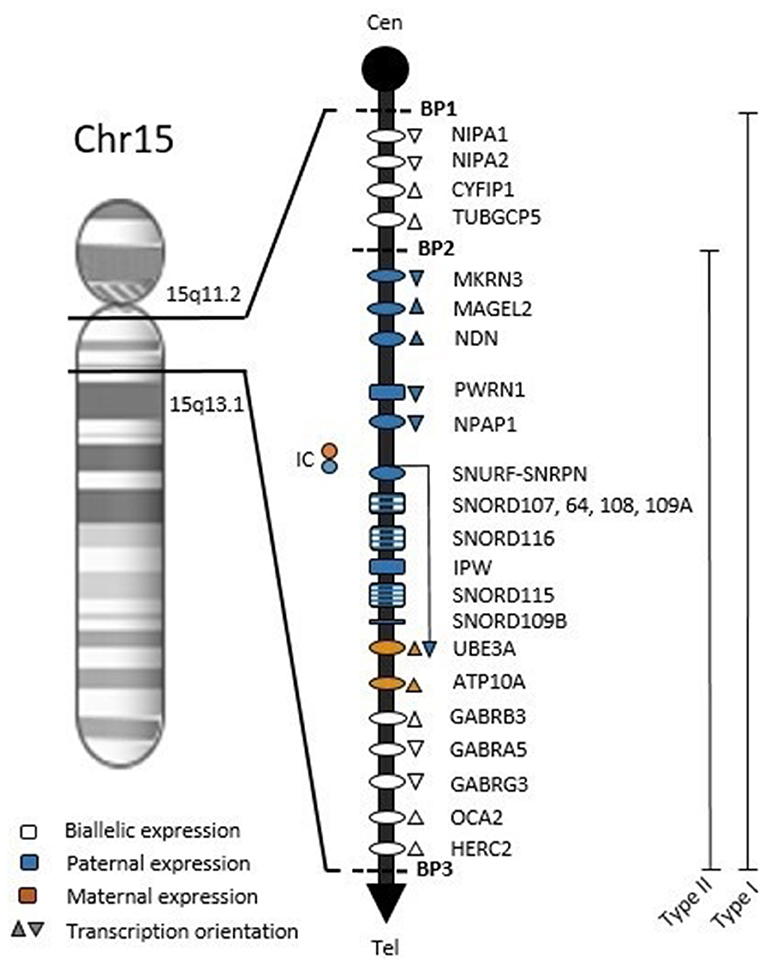Chromosome 15 Prader Willi Syndrome Karyotype

A new case of rearrangement of chromosome 15 associated with prader willi syndrome.
Chromosome 15 prader willi syndrome karyotype. We report on a 10 year old boy with a 47 xxy del 15 q11 2q13 karyotype and a prader willi syndrome phenotype. His medical history and physical examination conformed to all of the major clinical criteria for prader willi syndrome but his height was taller than expected based on his hand and foot sizes. A chromosome 15 anomaly was observed in 12 of 20 patients 17 of whom were clinically suspected of having prader willi syndrome pws. The clinical diagnosis of pws was confirmed by methylation analysis that showed absence of the paternal band.
Prader willi syndrome is caused by the loss of function of genes in a particular region of chromosome 15 people normally inherit one copy of this chromosome from each parent. Smith a noel m. A girl with. The definitive test for prader willi syndrome in the absence of a deletion on karyotype is methylation testing to determine if there is a condition called uniparental disomy.
Prader willi syndrome pws is a genetic disorder caused by a loss of function of specific genes on chromosome 15. The pws critical region of chromosome 15 has only maternal and no paternal imprinting so both copies of the region are of maternal origin more to follow. A 13 year old girl with an unbalanced karyotype 45 xx 15 der 22 t 15 22 q13 q13 3 de novo had prader willi syndrome pws score 13 5 but with features of mental and physical retardation more severe than usually seen in pws. Beginning in childhood those affected become constantly hungry which often leads to obesity and type 2 diabetes.
On the other hand the group of normal karyotype patients is heterogeneous and their features do not strictly correspond to the clinical. In newborns symptoms include weak muscles poor feeding and slow development. A chromosome 15 anomaly was observed in 12 of 20 patients 17 of whom were clinically suspected of having prader willi syndrome pws. The clinical features of eight cases with 15q11 12 deletion were very similar to those originally described in pws.
Prader willi syndrome pws results from either paternal deletion of 15q11 q13 or maternal uniparental disomy upd of chromosome 15 or imprinting center mutation. Mild to moderate intellectual impairment and behavioral problems are also typical of. A de novo bisatellited derivative of chromosome 15 inv dup 15 pter q11 or 12 p11 or q11 or 12 pter was identified by multiple banding techniques in a patient with prader willi syndrome. Prenatal diagnosis of pws is currently indicated for chromosomal parental translocation involving chromosome 15 and for decreased fetal movements during the third trimester of gestation.
Pmc free article guanti g.

